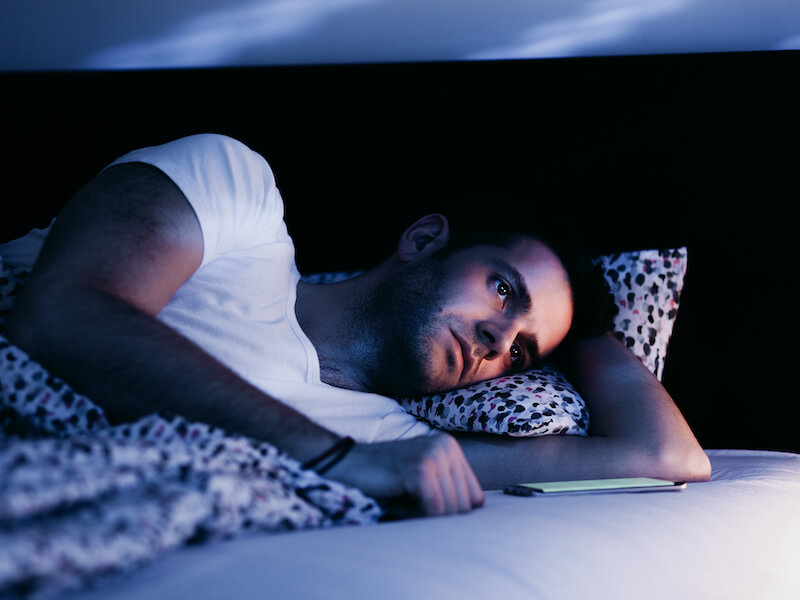
We’re accustomed to thinking of snoring as a nuisance, something that annoys you and, maybe, costs your partner a good night’s sleep every now and then. However, in many instances, snoring can be caused by a condition called sleep apnea.
Sleep apnea is a sleeping disorder that can make you stop breathing when you’re sleeping. While it’s a relatively common condition, sleep apnea can interfere with respiration and lead to significant health issues, so it should be taken seriously.
Sleep apnea – what is it?
Sleep apnea is, technically, a breathing disorder. The most common form of sleep apnea is called obstructive sleep apnea,” and here’s how it works:
- When you go to sleep, your body becomes relaxed.
- When the tissue of your throat gets relaxed, your airways can become blocked.
- During the night, you stop breathing because you’re unable to inhale or exhale through this blockage.
- In some instances of sleep apnea, this blockage can take place dozens or hundreds of times in a single night.
Here are some common symptoms of sleep apnea:
- Feeling tired or exhausted even when you got a full night’s sleep.
- Your partner has noticed that you periodically stop breathing at night.
- You have a snoring issue.
- When you get up in the morning, you have a headache.
- When you wake up, you have a dry mouth.
How to know if your snoring is related to sleep apnea
Some cases of snoring are normal and not harmful and others are caused by sleep apnea, but how can you tell which one you’re dealing with? You can typically watch out for one of the two manifestations:
- Deep, loud snoring: Light, high pitched snoring sounds are produced because of a restriction in your airway. Sleep apnea is a consequence of a collapse or near collapse of your airways, and this results in deep, loud snoring.
- Gasping or choking noises while snoring: These gasping or choking sounds are the result of your body struggling to breathe through this airway collapse. It may not even be something you observe, if you have a partner, ask them about these gasping or choking noises.
Symptoms may vary from person to person, but if you suspect that you are experiencing sleep apnea, it’s essential to speak with us about diagnosis and treatment.
Diagnosing sleep apnea
Sleep apnea isn’t something you can diagnose by yourself. We might need to set up a sleep study in some situations. There are two possible sleep studies that we might order:
- Home sleep test: A sleep test that includes a device you can use at home is a basic home sleep study. Rather than going to a clinic for testing, you hook this device up when you’re in your own bed. Typically, home sleep tests will monitor heart rate, blood oxygen levels, and airflow. The problem is, these tests can sometimes deliver unreliable results. When this kind of study fails to get precise results you will need to do a follow-up study performed at our clinic.
- Nocturnal polysomnography: This is the traditional overnight “sleep study.” Throughout the whole of your sleep experience, this nocturnal polysomnography study will take precise measurements. You’ll spend the night sleeping in a specialized medical suite, attached to an array of monitors. Nocturnal polysomnography is much more reliable than a home sleep study while perhaps a bit more inconvenient.
Usually, one of these diagnostics will either confirm or rule out sleep apnea. In some circumstances, you may be referred to an Ear-Nose-and-Throat physician to rule out a possible blockage.
How can you treat sleep apnea?
Once sleep apnea is diagnosed, it’s important to follow up by finding the proper treatment. For most people, sleep apnea management will rely primarily on the use of a continuous positive airway pressure (CPAP) device. This device uses positive pressure to, effectively, blow air into your lungs during the night. This assists your breathing throughout the night and helps stop your airways from collapsing.
But CPAP machines are often somewhat uncomfortable. Most patients have a positive adjustment time (and better sleep) over a short period of time.
In other, more severe cases of sleep apnea, there are some different solutions. These therapies could include anything from different devices to surgery (or, in some situations, a combination of both). Be sure you come in and speak with us because there’s no one-size-fits-all answer.
There might be more to it than simple snoring
It’s easy to disregard sleep apnea as simply everyday snoring. But that snoring could be negatively affecting your health and your quality of life. You will stay healthier and get better sleep if you get your hearing diagnosed and treated.